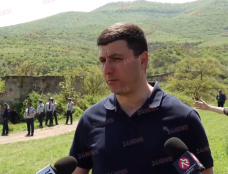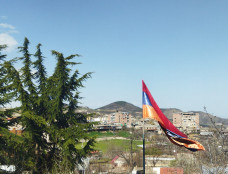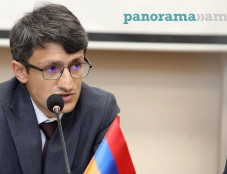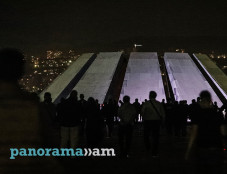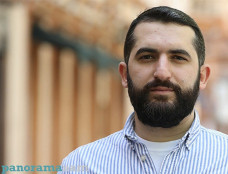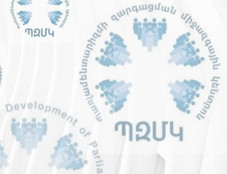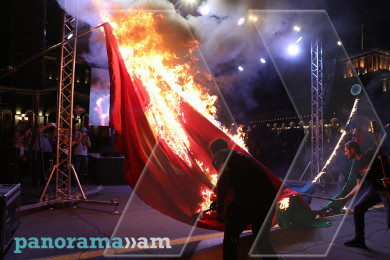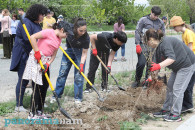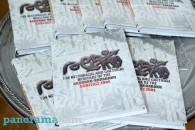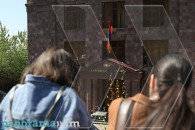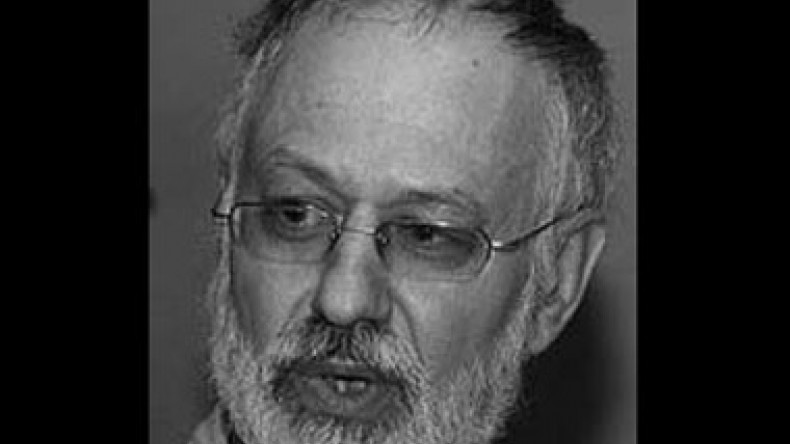
Victor Shnirelman: Why to attribute the dominant views in Azerbaijan to the “world science”?
Chief scientific researcher in the Institute of Ethnology and Anthropology in the Russian Academy of Sciences, Doctor of Historical Sciences Victor Shnirelman responded to the publications of Azerbaijani authors, who had earlier criticized his book The Wars of Memory: Myths, Identity and Politics in the South Caucasus (Moscow, 2003). ИА REGNUM publishes the article by Victor Shnirelman with his consent.
In February 2009 the administration of the Azerbaijan National Academy of Sciences (ANAS)together with the directors of a number of academic institutions convened a session devoted to my book Wars of Memory. It is hard not to notice that ANAS needed about six years to get familiarized with the book and to hold its discussion. At the same time the task of giving it a “worthy rebuff” was assigned to philosopher Zumrud Kulizade: apparently no historians knowledgeable in the subject under discussion were left in Azerbaijan; or maybe they were not qualified enough for such a responsible task (or rather it is more simple than that – the historians understand quite well what my book is talking about). For that reason they chose an elderly woman with life wisdom who (unlike of course my naïve self) knows well about the “politicization of the historical science” and “the manipulation of public opinion by historiographers”. Apparently the choice of the academic authorities was influenced by the fact that having possessed such sacral knowledge, this chosen candidate had refrained from discussing this question both in Soviet times, when it could have had serious consequences, and in post-Soviet times, when it became possible.
It is noteworthy that in her extensive critical essay the philosopher carefully bypasses the question of politicization of the historical science in Azerbaijan. Apparently Azerbaijan is the only state that serves as a unique example of devotion to authentic science and the lack of “manipulation of the public opinion”; apparently this is the only state in which there is no “reanimation of memory concerning historical offenses and wars”, which allows the philosopher to furiously attack the “foreigner” who dared to doubt this. The dear critic does not dispute my statement on that the ideology of ethno-political conflicts can’t but appeal to the past. However, her “philosophical erudition” does not allow her to conclude that it is exactly for this reason that the analysis of this kind of conflicts cannot ignore the images of the past created by local intellectuals. Moreover, she does her best to present the attempt of a scientific analysis of the conflict as its “inflation”. Aren’t the ethno-political conflicts normally so protracted because of the fact that the local intellectuals refuse point blank to make a deep and comprehensive analysis of these conflicts? Instead of making an effort to figure out the problem of the “social memory”, the philosopher, quite in line with the Soviet style, distorts my words and ideas in the most absurd manner and ascribes to me those which I have never shared. Indeed, it turns out to be much easier to refute these ideas since the philosopher refuses to actually polemicize the main ideas that make up the core of my book; here is where the Soviet training comes to help – to speak without saying anything essential.
Like many other critics the Azerbaijani philosopher accuses me of an “incorrect interpretation of the history of Azerbaijan”. But in my books devoted to the “historical memory” there isn’t and there couldn’t be any claim of writing the history of the Caucasian nations and their culture. The question under discussion is the images of the past constructed by various intellectuals in this or that historical period as well as the link between these images and the ethno-political context, including the Soviet national politics. However, the philosopher, who mentions the names of such renowned authorities as Halbwachs and Werth did not understand this: apparently she knows the works of these authors only by name. It looks like she hasn’t bothered to read my book either; after all, even the titles of separate chapters of my book are not correctly quoted in her review. Where and when did I insist that the history of the Caucasus is that of endless wars and genocides? Where did I write about “the nations of the given region being psychologically encoded for mutual hatred” or about the perpetuity of ethnic wars on the Caucasus? Where did I claim that the “Azerbaijani Turks must be subjected to genocide”? How exactly is my “negative attitude towards Islam” manifested? And where do I “present to the reader the past and the present of Azerbaijan and the Azerbaijanis as a historical nuisance” (unfortunately the philosopher stays ignorant of the contemporary research on ethnicity; she is hopelessly confused in the understanding of primordial and constructivist approaches)? All these are but baseless assertions of the philosopher who has done everything to avoid discussing the most important and key problems that are raised in my book. In particular I would like to ask her why during the 20th century the Azerbaijani scholars changed the image of their ancestors for five times. This question is discussed in detail in the book, but the philosopher considers this issue unworthy of her attention; she simply does not notice it.
Instead, she devotes the bulk of her review to groundlessly accusing me in “unprofessionalism” and in “falsifications”. It remains quite unclear what the massive quotes from medieval authors, which she quotes without commenting, have to do with my book (by the way it looks like the philosopher is not aware of such science as Source Studies and the problem of the critique of written sources remains a grave mystery for her). After all they do not throw any light whatsoever upon the questions which I dedicated my book to. I would also like to know who among the multiple medieval authors quoted by the philosopher called himself an “Azerbaijani”. And why, speaking of “historical compositions… published in Russian and Azerbaijani languages in the 30s and in the subsequent years of the 20th century” the author refers solely to the works written at the beginning of the 20s? It looks as if this kind of “imprecision” is typical to the philosopher’s knowledge of history in general. That is why in her understanding the Oghuzes lived either at the turn of our era or “many thousand years ago”. She is apparently not concerned with the problem of strict chronology that lies at the basis of the historical science. Doesn’t this disorient the same audience which my dear critic is so concerned about?
Kulizade does her best to defend her colleagues trying to shield them from any kind of criticism. I assume she might be somewhat ignorant in this regard. For that reason I bring it to her attention that Z. M. Bunyadov and his followers, while editing the works of the medieval authors (which she so persistently recommends me to read!) were systematically engaged in falsifying them, either omitting the term Armenians from those sources or replacing it with the term Albanians. Moreover, Bunyadov was caught also in plagiarism when he presented the translation of two articles written by Western scholars George Doucette and Robert Hewsen as his own works.
By the way, in 2006 F. Mamedova spoke about the passions that “patriotism” and the struggle against the Armenian historical presence in the Caucasus aroused in the modern Azerbaijani science. Unlike forgetful Kulizade, she also recalled the pressure which in Soviet times Heidar Aliyev was exercising on the historians.
Neither did the harsh critic address the scientific content of the concept of “historical myth” or the essence of the contemporary myth-making based on scientific technologies. While in doing this it could have been useful for her to get familiarized not only with the works by Halbwachs and Werth that she mentioned but also with the works by contemporary authors that she did not mention, such as E. Cassirer, Anthony Smith, P. Nora, P. Bourdieu and many others who have studied “social memory”, “nationalistic myth-making”, “symbolic politics” (if only she would read these authors rather than borrow their names from the works of her better-informed colleagues). I am not at all talking about the “ignorance” of local authors (an opinion attributed to me by the philosopher) – the problem is in the political order which, with strict consistency, was and is still exercised on the historians (it is another question that some might embrace this, others might oppose, but the latter are incomparably less in number than the former). One could assume that the philosopher who had long ago realized in depth the factor of the “politicization of historical science” was supposed to draw her attention to it. But no, she categorically refuses to see it. Instead, she is persuading me to study the ethnogenesis of the Russian or Jewish people (at the same time she does not come up with anything better than to line up with the Soviet anti-Zionist propaganda, while resenting the Soviet anti-Turkic propaganda which is no less “well-grounded”). Furthermore, she is surprised that I am not doing this in a book on the Caucasus. One would wish to hope that not all the Azerbaijani philosophers follow this strange logic.
The philosopher, who accuses me of not paying attention to mythologized plots found today in Russian science, should have got better acquainted with the works of the author whom she so arduously criticizes. This, as well as a thorough study of the works on “social memory” (together with contemporary research on the problems of ethnicity) would have saved her from unfortunate blunders and fabrications. Without this the reasoning of the philosopher, who keeps turning to one and the same indiscriminate accusations, sounds more like a shamanistic ritual than a scientific polemic. She seems to be thinking that an endless repetition of one and the same groundless slanders could make a better effect on the reader than serious scientific arguments.
The original usage of the term “Azerbaijani” by the philosopher is also noteworthy – according to her the Persian Empire, the Tsarist Russia and the USSR were all “Azerbaijani”. In this she hasn’t gone far from her compatriots who call the Palaeolithic man, whose remains were found in the Azykh (Azokh) cave, an “ancient Azerbaijani”. Indeed, she seems to be sure in that Turkic people have lived on the territory of Azerbaijan always! Misleading the reader the philosopher also asserts that “the states of Manna, Medes, Atropatena and Albania… are recognized… by the world science… as Azerbaijani states”. Why attribute the dominant views in Azerbaijan to the “world science”? One shouldn’t be so explicitly engaged in falsifications, while at the same time reproaching others for that. She ascribes to me the tendency to “‘each time insert new meaning into the concepts of ‘Azerbaijani nation’ and ‘Azerbaijani’”, while she herself is doing exactly that, following the long-established tradition in the Azerbaijani science.
As for the term “Northern Azerbaijan”, this name is accepted only in the motherland of the philosopher, who acknowledges that even in early medieval times, let alone earlier antiquity, Caucasian Albania was located here; there was no Azerbaijan here in those times. The reasoning of the philosopher about ancient linguistic situation is also characterised by the lack of professionalism: she is unaware of the fact that the North Caucasian language family included a great number of different languages and this did not at all presuppose any ethno-cultural unity, which could not in fact have existed in that antiquity. That is why, contrary to the philosopher, there is no need to speak about “one and the same languages of the population of the North and the South”. The science today is simply incapable of determining who had lived in this region before the so-called “North Caucasians”; there is no data about that. As for these “North Caucasians”, they were not and could have never been “Azerbaijanis” – this is exactly how the “modern science” approaches this question; however in Azerbaijan (for quite understandable political reasons) they prefer to hold a different opinion.
It is of course hard for the philosopher to assess the dispersion of opinions held by historians. However, it is worth noting that the historians themselves know it very well whose opinions are trustworthy and who is not be trusted. That is why the references by the philosopher on that “there are also other opinions” do not prove much. The ideas of pan-Turkism in their turn interest only the marginals; authoritative historians are not encouraged by these ideas.
Finally, the author, supposedly having profoundly understood the “universal patterns and peculiarities of ethnic, ethno-linguistic and ethno-cultural processes” seriously assures us in that ethno-political conflicts constitute a “universal pattern of the social-cultural development of the post-Soviet region”. By whom, when and where was this “pattern” established? Maybe it was done by the philosophy which the author pursues? But doesn’t this kind of “philosophy” constitute an “incitement of animosity”? And the count of which of the warring parties destroyed greater number of villages in 1905 is hardly an evidence of author’s care for “peace” but for rather determining who exactly should be presented as an “aggressor”. At the same time, accusing me of the tendency to “substantiate the inevitability of both contemporary and future ethnic conflicts in the region” the author simply passes the buck by attributing her own “logic” to me. The author also reproaches me in that I allegedly “give the reader no chance to think for himself and make his own conclusions”. Why is that? Wasn’t she the one who started “thinking for herself” and came up with “her own conclusions” (if of course her colleagues didn’t do this for her)? It is true though that these conclusions proved to be quite weird, if not to say anything else. One would like to hope that the reader, who, unlike my harsh critic, will read my book attentively and entirely and will have his own considerations, will come up with other conclusions. And I do know such readers.
In fact the opus by Z. Kulizade is much more decent than the lampoon by A. Alekperov, who did all he could to dehumanize and to present his neighbors-Armenians in a negative light by means of spreading the dirtiest gossips, monstrous rumors and clearly falsified data. It is true though that unlike Kulizade, he bothered to familiarize himself with my analysis of Armenian ethno-genetic myths, but he did that only for the sake of blaming the Armenians in “fraud”. However he sees no fraud in the works of his compatriots; neither does he want to recognize the common ethno-centric direction of ethno-genetic constructions in the works of most diverse national schools of historians of the Caucasus to which I devoted two of my books.
And this is the same Alekperov who in 1992 in his PhD dissertation was supporting a ridiculous thesis, not accepted by anyone, on that the early medieval “sakaliba” and “sklavens” were supposedly “Turks-Bulgarians” and were not related to the Slavic people. As for the “Saka-Scythian confederation” (where did he find this?), he peremptorily characterizes it as Turkic speaking.
Kulizade supposes that my work was an “order”. Some Ossetian authors also wrote the same thing about another book written by me, but they went even further having hinted at a big payment. It would be good for all these experts to point to this sponsor more precisely and to inform me where, how and from whom I could receive this “payment”. However, while Kulizade was working on her opus, her compatriots F. Alekperli and S. Muradaliev demonstrated with their polemic that, notwithstanding the assertions of the dear philosopher, the local intelligentsia had no clear notion about the Azerbaijani identity in 2009 (when the famous session of ANAS was convened!) either – some called themselves “Azerbaijanis”, others “Turks”. At the same time the former acknowledged the compound composition of the Azerbaijani nation while the latter chose the Turks as their ancestors. In other words, the process of choosing the ancestors, which I analyzed, continues up to the present day and it still keeps on dividing the nation. But a “foreigner” is not supposed to know about this and is forbidden from discussing this issue. One can only hope that this knot will be successfully untangled by wise Kulizade.
In the meantime, the authorities of Azerbaijan explicitly demonstrate exactly that what Kulizade tried so hard to disprove. Thus, on 14 Dec. 2005 in his speech delivered on the occasion of the 60th anniversary of the National Academy of Sciences of Azerbaijan President Ilham Aliyev called for the Azerbaijani scientists to get involved in the program which aimed to prove to the international community that the Karabakh Armenians have no historical title to the territory of Nagorno-Karabakh. Aliyev promised to subsidize the united efforts of Azerbaijani specialists in developing and promoting his thesis on that “the Armenians came to Nagorno-Karabakh, an integral part of Azerbaijan, as guests” and thus “they have absolutely no right to claim that Nagorno-Karabakh belonged to them in the past”.
The scientists were apparently enthusiastic about this appeal and responded to the president with new impressive “findings”. For that reason on 14 Oct. 2010 he already confidently declared that “present-day Armenia, the territory named on the map as the Republic of Armenia, is a native Azerbaijani land. This is the truth. Of course Zangezur and Yerevan khanate are our lands! … Our children must know all this; they must know that today’s Armenia is located on native Azerbaijani lands”.
For making this indigenousness look more convincing all the traces of Armenian culture have been being systematically erased from Azerbaijan. This refers especially to Nakhichevan. From 2003 to 2006 the medieval cemetery of Old Jugha (Azeri Julfa), including its unique khachkars, was completely destroyed there. On the North of Azerbaijan they have also destroyed the Avarian cemeteries; as for the Lezgian cemeteries, they have changed the names of the deceased on the tombstones adding Turkic suffixes to them. They have also removed the monuments to prominent Avarian historical figures there (among them the one to Imam Shamil in 2000) and replaced them with monuments to N. Narimanov and Heydar Aliyev.
In other words, what I wrote about ten years ago has its continuation today and there seems to be no end to it. But ANAS is not worried about all this! Instead, they are always ready to fight back the foreign “slanderer” – it is safer this way.
Newsfeed
Videos






